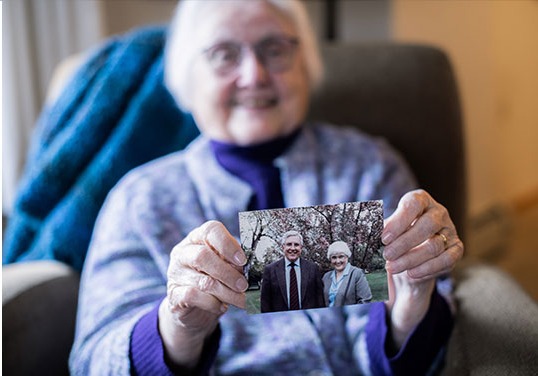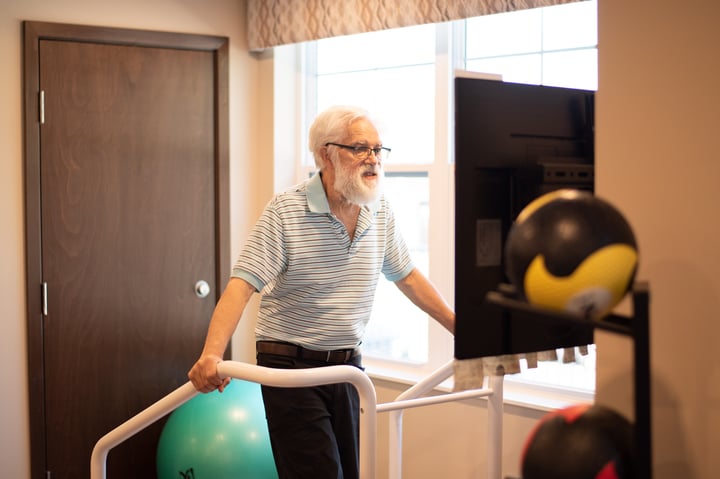The Remarkable Life of Shelley Wiggins
Shelley Wiggins, a resident of Walker Methodist, knows what living with Parkinson’s Disease looks like. This is her story.
Read Full Blog
Each person’s experience with Parkinson’s disease is unique. That's why we have an interdisciplinary approach to managing patient care that involves connecting with a resident’s medical and physical therapy teams.
Proven treatment methods are used by our staff regularly through our exercise programs and timely medication delivery.
Our communities partner with the Struthers Parkinson’s Care Network, a leading authority in the treatment of Parkinson's Disease. Through this partnership, our staff is continually receiving ongoing support and training on the latest advances in Parkinson’s care treatment.


Giving people with Parkinson’s more time in their daily routine.
Understanding all the differences that come with the disease—especially difficulty moving—so one can be aware when assistance is needed.
Encouraging equal access to a high-quality of life by remaining mentally, physically, and socially active.
Training, insight, and understanding of the many different symptoms and stages of Parkinson’s Disease.
Ensuring medications are given exactly when they are most effective for the patient.
Scheduled supportive group sessions made available for caregivers.
Parkinson’s disease involves a breakdown of the vital nerve cells within the brain (neurons) that transmit messages throughout the rest of the body. While each person’s symptoms are very different, Parkinson’s is characterized by:
High protein diets limit the absorption of common Parkinson’s medications. Implementing more fruits and vegetables may reduce symptoms by protecting vital nerve cell function.
Regular stretching and flexibility exercises help loosen stiff muscles, improving mobility in everyday activities.
Parkinson’s is known to damage neurotransmitters, dopamine, and serotonin. Music therapy has been shown to stimulate the production of these chemicals in the brain helping treat individuals more effectively.
Shelley Wiggins, a resident of Walker Methodist, knows what living with Parkinson’s Disease looks like. This is her story.
Read Full Blog
